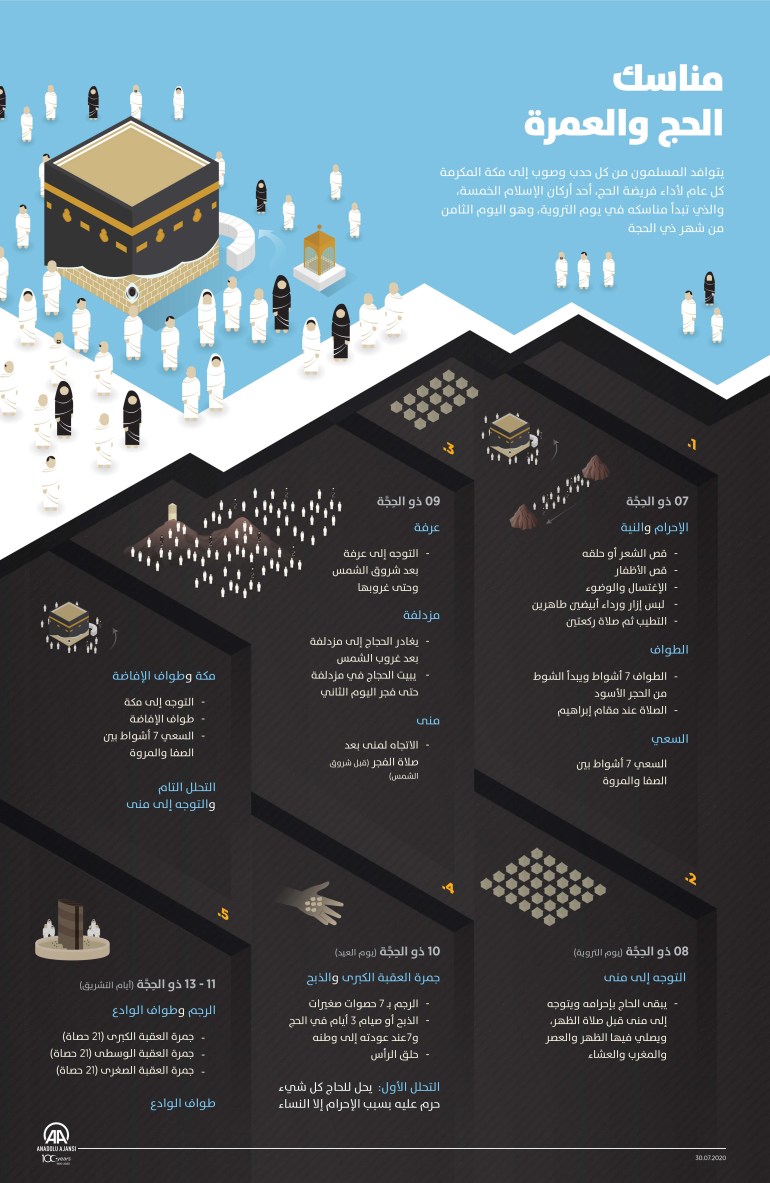Among the most common diseases during Hajj are colds, seasonal flu, and bronchitis, according to the Saudi Ministry of Health.
These diseases are transmitted through droplets with coughing, sneezing or talking.
In order to prevent these diseases, the Ministry advises - through its Hajj website - to follow the following guidelines:
Wearing masks, especially in crowded places, and replacing them from time to time according to the manufacturer's instructions.
Use tissues to cover the nose and mouth when sneezing or coughing and then dispose of them in the trash. If tissues are not available, it is preferable to use the upper arm, not the hands.
Do not touch your eyes, nose or mouth with your hands until you have washed them well.
It is sufficient to shake hands when greeting others, as much as possible.
Do not drink ice or very cold water.
Avoid direct exposure to air conditioners when sweating.
As for the injury, the following is recommended
Rest and drink plenty of fluids containing vitamin C, such as lemon and orange juice.
Take analgesics and antipyretics.
See a doctor if severe symptoms appear.
Tuberculosis and pilgrimage
Tuberculosis is one of the diseases that are easy to spread during Hajj because of crowding, and the arrival of some pilgrims from areas affected by this disease.
Tuberculosis is transmitted by droplets in the air during coughing, sneezing, or talking.
Therefore, the Saudi Ministry of Health recommends that patients with tuberculosis postpone Hajj to later years unless the following conditions are met:
That the result of sputum is negative, indicating the exclusion of transmission of the infection to others.
That tuberculosis is not resistant to antibiotics.
Ensure that the patient takes the medication regularly.
The ministry says, "If you have a persistent cough for more than two weeks, you should do the necessary tests before traveling for Hajj to ensure that you are free of tuberculosis."
Ways to prevent and reduce the spread of tuberculosis during Hajj
Wearing masks, especially in crowded places.
Avoid staying in crowded places as much as possible.
Use a tissue to cover your nose and mouth when sneezing or coughing, then dispose of it in the trash.
Wash hands frequently.
Constantly ventilate the accommodation.
Be sure to inform the accompanying mission doctor if a person is found in the place of residence suffering from a persistent cough for long periods.
If you have tuberculosis, you must inform the medical mission of your campaign to follow up on you during the Hajj period.
When you return to your country, it is preferable to consult a specialist doctor to perform the necessary tests to ensure that you do not have tuberculosis infection during your Hajj.
Using masks, especially in crowded places, and replacing them from time to time - according to the manufacturer’s instructions - protects you from infectious diseases transmitted through flying droplets during coughing or sneezing.

